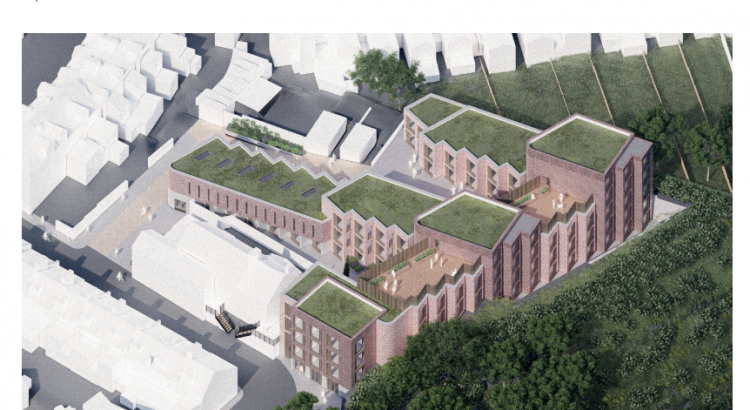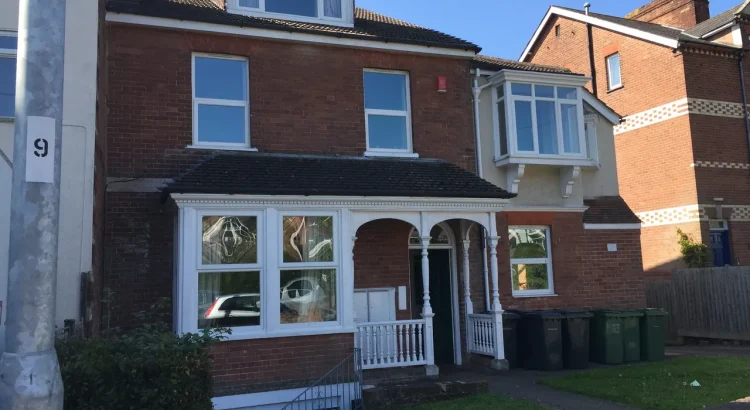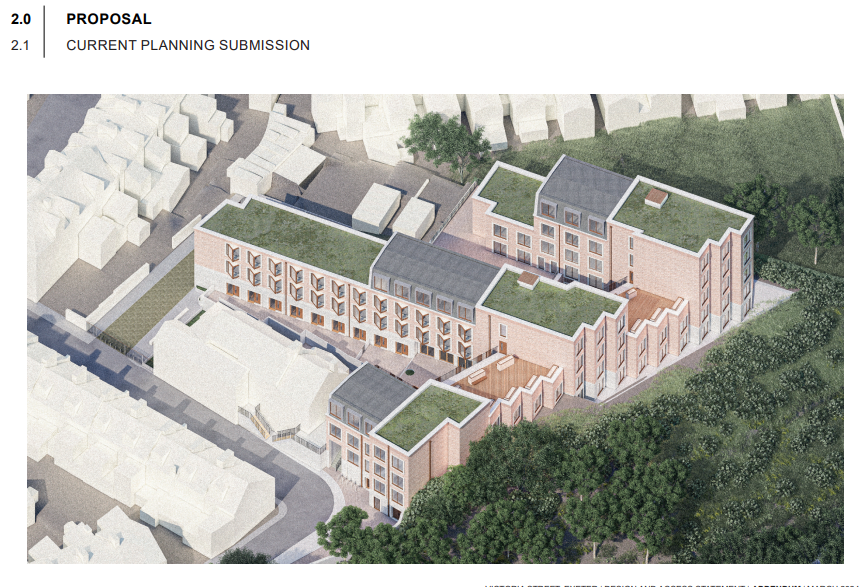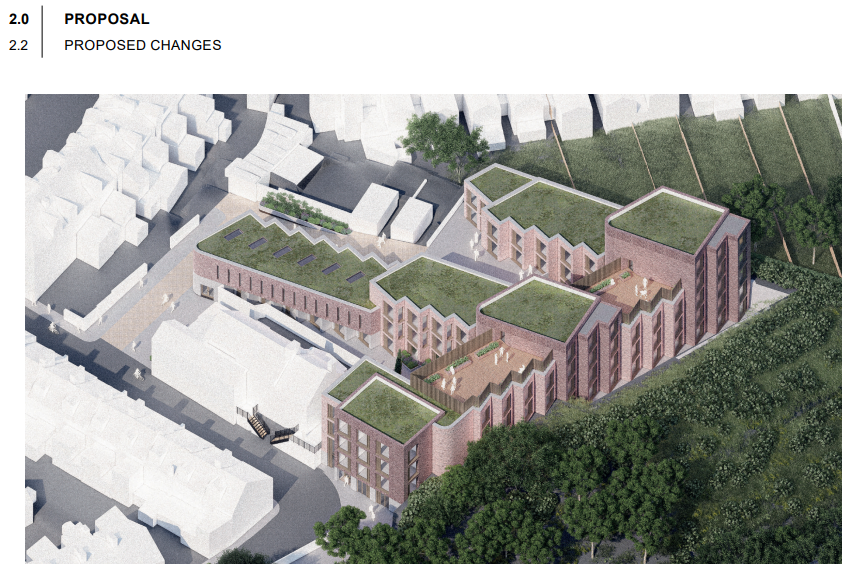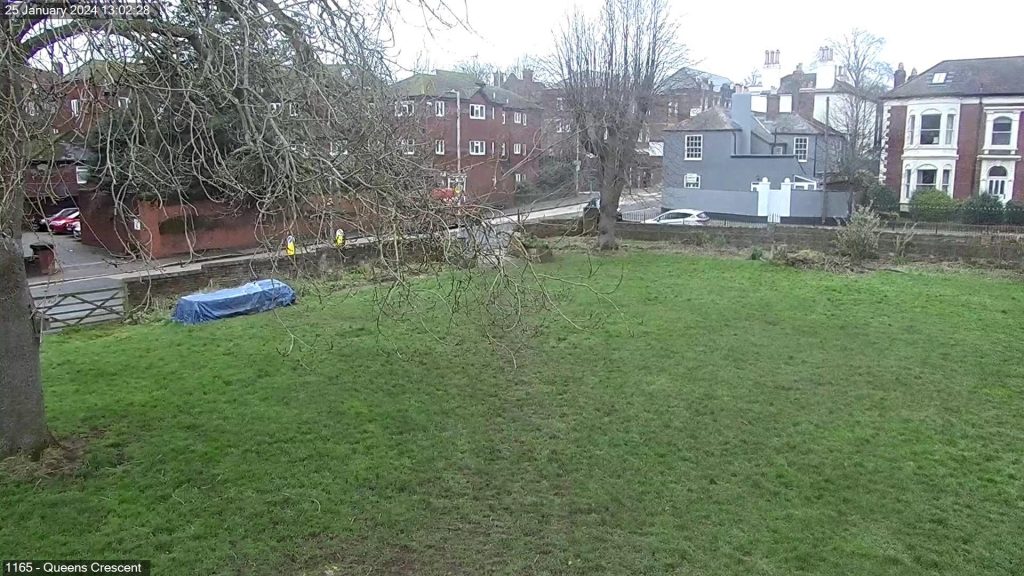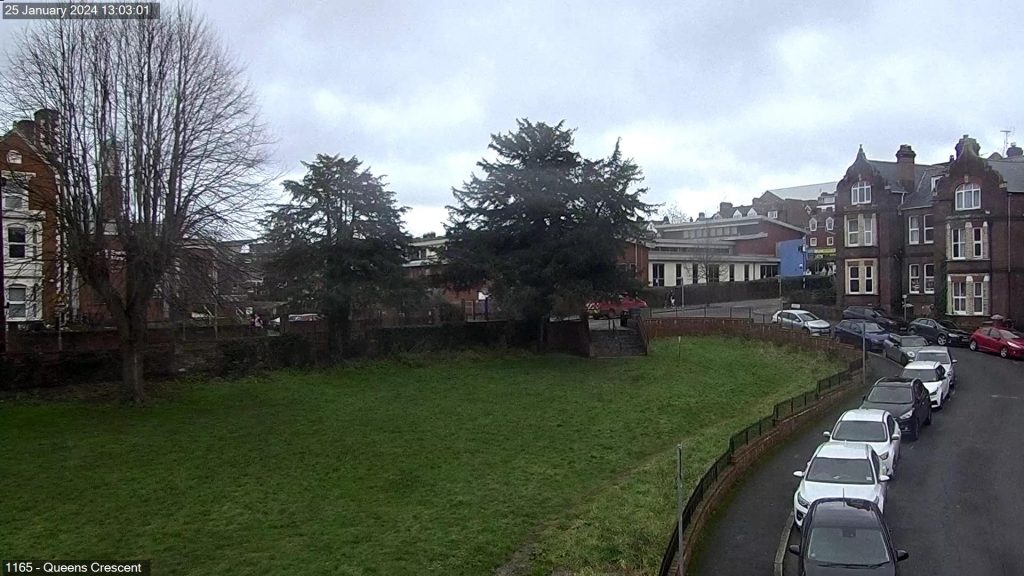The Trust has learnt that the refusal of the application 21/1014/FUL for a 26 bed student accommodation block (PBSA) on the former Maximum Motors’ site in Howell Road (see News Archive for previous coverage relating to this proposal) has been overturned at appeal, although the related application for award of costs against the Council has been refused. Despite the permission being contingent upon 18 conditions including a pre-approved management plan, this is not only extremely disappointing, but baffling.
Amongst other grounds, not least the threat to sustainability presented by the worsening of the existing community imbalance, with temporary student residents comprising more than half of the total resident population, the Trust and Exeter St James Forum before it, with the full support of our city councillors, had argued that the proposal was contrary to the Neighbourhood Plan’s Community Policy C2a.
The preamble to Policy C2, which serves as guidance for the interpretation of the policy wording, explains that in St James, with its largely intact residential character with tight pattern of streets and spaces, there are few areas apart from Sidwell Street where large scale (10 or more bed) purpose built student accommodation (PBSA) may be appropriately integrated.
Policy C2, worded positively as required, then states:
Large scale purpose built student accommodation will be permitted in areas where it can be properly integrated into the urban area
before listing three location descriptions which must be met for such integration to be deemed acceptable.
C2a sets out the first location description as follows:
locations a) that are not predominantly characterised by intact streets of traditional terraced, semi-detached and detached forms of 2-3 storey residential development;
The Inspector acknowledges that ‘the location around the appeal site comprises some intact streets of traditional terraced, semi-detached and detached forms of 2-3 storey residential development’ yet concludes this large-scale PBSA is compliant with Neighbourhood Plan Policy C2a, apparently by focusing on the one street, Howell Road, and even then solely on the few non-residential elements, noting the former garage site itself, the brick wall surrounding (residential) Horseguards and the nearby prison wall.
It is hard to comprehend how the various intact residential streets in the immediate vicinity of the development site, Danes Road, Hoopern Street, and Horseguards together with the predominantly intact residential Howell Road itself, could have been dismissed when reaching this verdict.
It is a serious concern that the sustainability of the community will be further threatened, and regrettable that an opportunity has been lost for development of much-needed homes for local residents on one of the relatively few windfall sites likely to arise in St James owing to closure of commercial premises. However, residents will draw some comfort from knowing that one of the 18 conditions upon which permission is granted states:
No part of the development hereby approved shall be occupied until a management plan has been submitted to and agreed in writing by the local planning authority.
The management plan will include:
i) occupation/letting criteria,
ii) staff support/control,
iii) student discipline,
iv) car ownership/parking,
v) security, and,
vi) an arrival/departure procedure.
Immediately upon occupation of the development, the developer shall implement the management plan. Following implementation of the management plan, there must be no variation of it without the prior written agreement of the local planning authority.
The Trust will urge the local planning authority to insist that, under this plan, management contact details are made available to local residents to facilitate swift resolution of any issues that may arise.
This disappointing outcome will provide useful food for thought should residents come forward with the vision and determination to prepare a new neighbourhood plan to replace the current plan which in any case is due to expire in 2028. The Trust very much hopes that this will be the case, with other areas of the city already considering the merits of neighbourhood planning for their own areas.
See the decision notice for the Appeal here and the Application for Award here.

